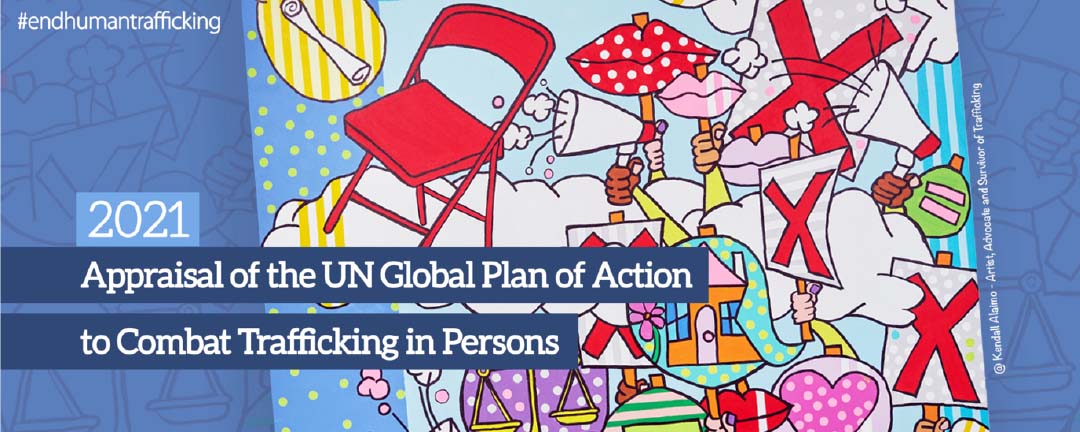At the end of November delegates at a high-level meeting of the General Assembly appraised the progress achieved in the implementation of the Global Plan of Action to Combat Trafficking in Persons, which was adopted in 2010. This appraisal takes place every four years and provides an opportunity to acknowledge achievements and reflect on existing gaps and challenges.
The 2021 event reiterated that trafficking in persons can occur in every region of the world and can take many forms. Women and children, particularly girls, are amongst the most vulnerable persons to be trafficked, especially for the purpose of sexual exploitation. Social media and online platforms are increasingly used by traffickers to identify and recruit victims and advertise services provided by victims. The COVID-19 pandemic has worsened economic and social inequalities that are among the root causes of human trafficking.
Speaking at the High-Level Meeting on the Appraisal of the UN Global Plan of Action to Combat Trafficking in Persons, Archbishop Gabriele Caccia, Permanent Observer of the Holy See to the United Nations, called for international cooperation and data collection on human trafficking in order to evaluate the progress made and the remaining gaps on the objectives that underpin it.
He noted that despite the increasing number of states that have developed national data collection systems on trafficking in persons in the past decades, world data is still limited and that weakens more effective international action. Archbishop Caccia then noted that partnerships among States and stakeholders have been strengthened, giving a basis for concerted work that must always be enhanced. In this regard, he stressed the need for cooperation between local authorities, national governments and faith-based organizations, holding up the example of Talitha Kum present in 92 countries and on 6 continents, which has helped address root causes of trafficking and collaborates with law enforcement authorities in the fight against the scourge.
Concluding, the Archbishop restated the Holy See’s commitment to playing its role in preventing, denouncing and combatting trafficking, and in “promoting a model of cooperation based on fraternity, solidarity, and commitment capable of remedying the globalization of indifference in which human trafficking thrives.”

.png)





